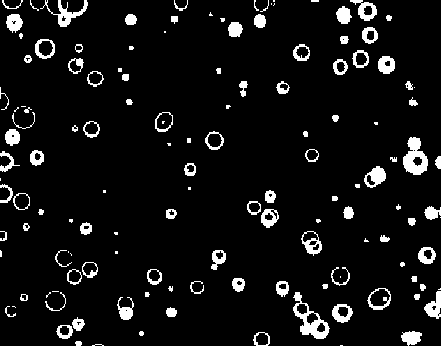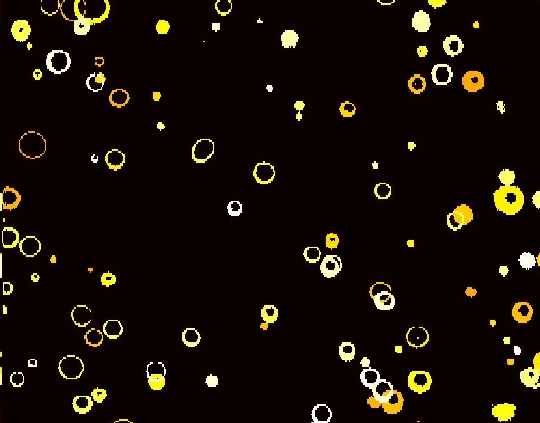
In this research we are attempting to make more accurate measurements
of rain drop size and shape, an important parameter in
dual-polarization radar measurements of rain. We are collaborating
with
Dr. Larry F. Bliven of NASA/GSFC, Wallops Flight Facility who has
developed the Rain Imaging System (RIS) which we use in field
research. This system consists of a camera which images the raindrops
which fall between it and a light source. The image below is a
compilation of several RIS video images (a typical image usually has
only one or two drops) showing raindrops of various sizes. The `hole'
in the center of some of the raindrops is an image of the light source
which is located behind the drop, and is used to determine which of
the imaged drops are in the measurement region.

The following movie shows the images of raindrops as they are
acquired over time. This is a compilation of about 20 seconds
of rain, obtained when Tropical Storm Hanna passed over
Clemson, SC in 2002.
Spatter Display Movie of
Rain from TS Hanna (visualization by Disha Saxena) 
The color scheme in the above visualization paints newly measured drops as white which turn from yellow to orange to red and then to black as time passes.
Further work in this area will address the statistics of
raindrop size and shape as well as the role of surfactants in
rain.
This work sponsored by NASA and NSF.
Last Updated June 6, 2012.